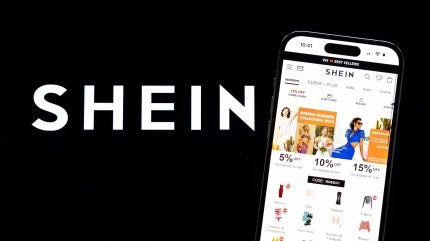
Yinan Zhu, Shein general counsel for Europe, Middle East, and Africa (EMEA), provided written evidence to a British parliamentary committee chair on Friday (24 January), outlining that its contract manufacturers are required to source cotton exclusively from approved regions.
These regions include Australia, Brazil, India, the US, and selectively from countries in Europe, the Middle East and Africa, and Southeast Asia.
Responding to the question ‘Do Shein products contain Chinese cotton?’, Zhu wrote that the company does not “prohibit the use of Chinese cotton in our products specifically where such use would not contravene the laws and regulations of the jurisdictions in which we operate”.
She also said that “to the extent the laws of a jurisdiction impose restrictions on the use of materials from certain regions, such as in the case of the US Uyghur Forced Labour Prevention Act (the “UFLPA”), we have adopted policies and procedures to ensure that we comply with such laws”.
The UFLPA legislation is aimed at preventing goods made by forced labour in China from entering its markets.
Amidst accusations that Shein’s merchandise contained cotton from China’s Xinjiang province, a region scrutinised for alleged human rights abuses against Uyghur people by the US and NGOs, Zhu emphasised the company’s supplier code of conduct against forced labour applies universally.
However, Zhu did not clarify whether this policy extends to products sold in other markets such as the UK.
The lack of specificity comes at a time when Shein is contemplating an initial public offering (IPO) in London.
Labour lawmaker Liam Byrne, chair of the cross-party Business and Trade committee examining the new government’s Employment Rights Bill, expressed dissatisfaction with Shein’s ambiguity.
Byrne has sought further clarity from Shein regarding the use of Xinjiang cotton in UK merchandise.
During an interview with Reuters, Liam Byrne said: “I just want to know the truth and I think British consumers want to know the truth and if that (IPO) moment ever comes I can tell you British investors are going to want to know that truth.”
Shein employs isotopic testing through Oritain; however, tests conducted during 2024 indicated that 1.3% of Shein’s cotton originated from unapproved regions. The specific regions remain undisclosed.
Zhu’s prior appearance before a parliamentary hearing on 7 January was marked by reluctance to discuss Shein’s use of Chinese cotton directly, drawing criticism from Byrne who then approached both the Financial Conduct Authority (FCA) and the London Stock Exchange—entities involved in approving Shein’s IPO—for greater scrutiny.
Recently, Shein stated it ensures “fair and dignified treatment of all workers” following a BBC investigation that alleged some garment workers in China work 14-hour days, however an industry expert tells Just Style it’s time for the retailer to publish a full supplier list.
On 21 January, the Joint Committee on Human Rights launched a new inquiry focused on forced labour within UK supply chains.
The investigation will assess both the legal and voluntary frameworks that support the UK’s approach to addressing forced labour in global supply chains. Additionally, it will evaluate whether any changes are necessary to enhance the effectiveness of the UK’s efforts to combat this form of exploitation.



